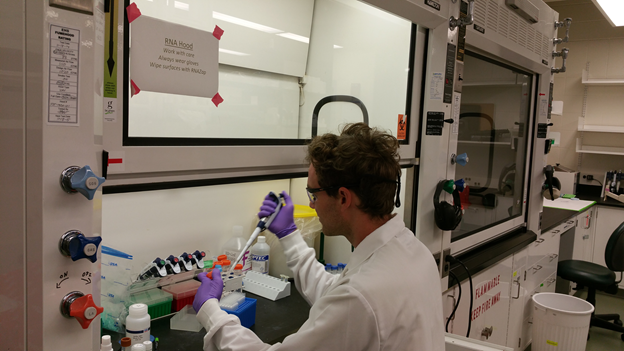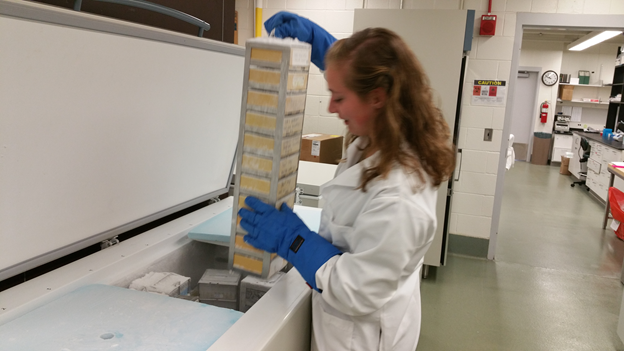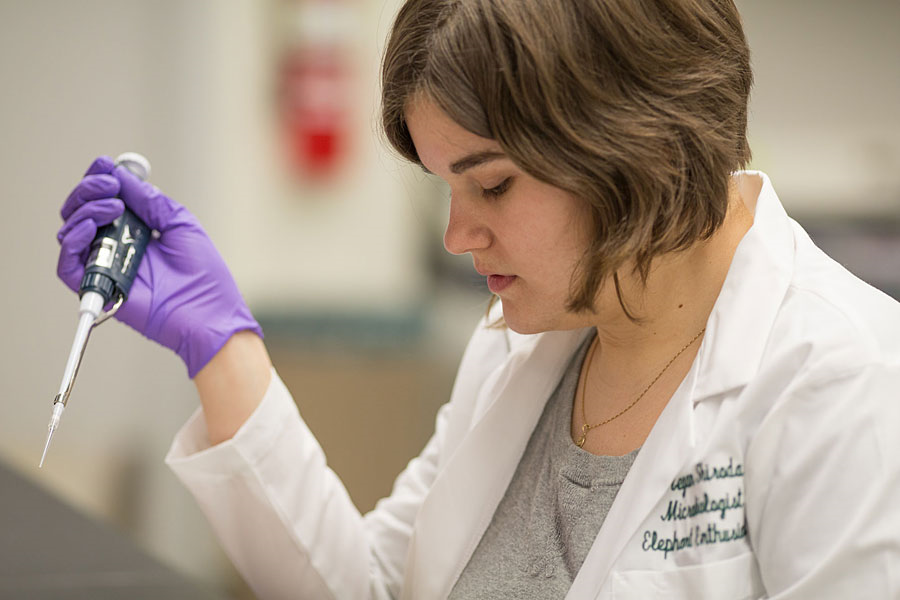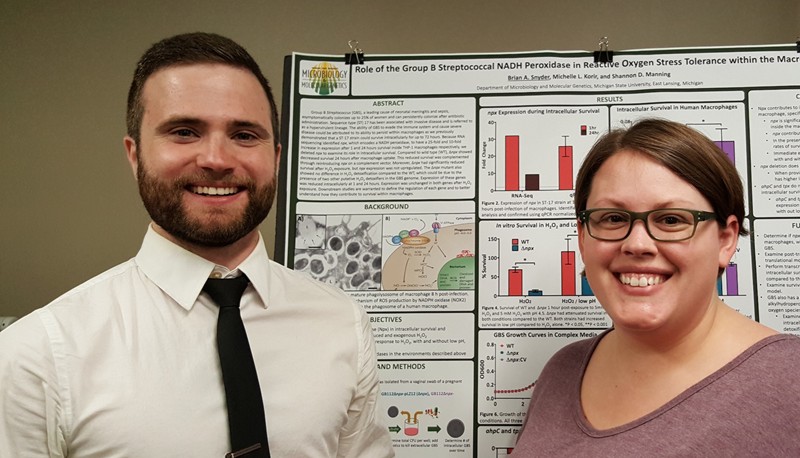Group B Streptococcus
We have conducted several studies of group B Streptococcus (GBS), a leading cause of sepsis and meningitis in newborn babies and common cause of preterm birth and stillbirth.

- We have found that GBS genotypes vary in their ability to attach to and invade host tissues, and have distinct gene expression profiles following exposure to the tissues (See: Korir et al., Infect Immun 2014).
- GBS genotypes also vary in their ability to survive inside macrophages and tolerate antibiotics (See Korir et al., Virulence 2016).
- Evasion of immune responses is critical for GBS pathogenesis (See our recent review: Korir et al. Clin Microbiol Rev 2017).

- We have shown that GBS genotypes vary in their ability to form biofilms and colonize host tissues (See: Parker et al. BMC Microbiol 2016).
- We recently characterized the Rgf two-component system and defined its role in association with human cells (See: Parker et al. Genes 2017).

- We have detected high rates of neonatal colonization and disease in our recent study of 500 mothers and their newborn babies in Nigeria, and identified risk factors important for both outcomes (See: Medugu et al. Clin Microbiol Infect 2017).

- Some current studies involve examining the protective effects of novel therapeutics that can inhibit GBS, identifying mechanisms for intracellular survival, and classifying host responses to infection.
